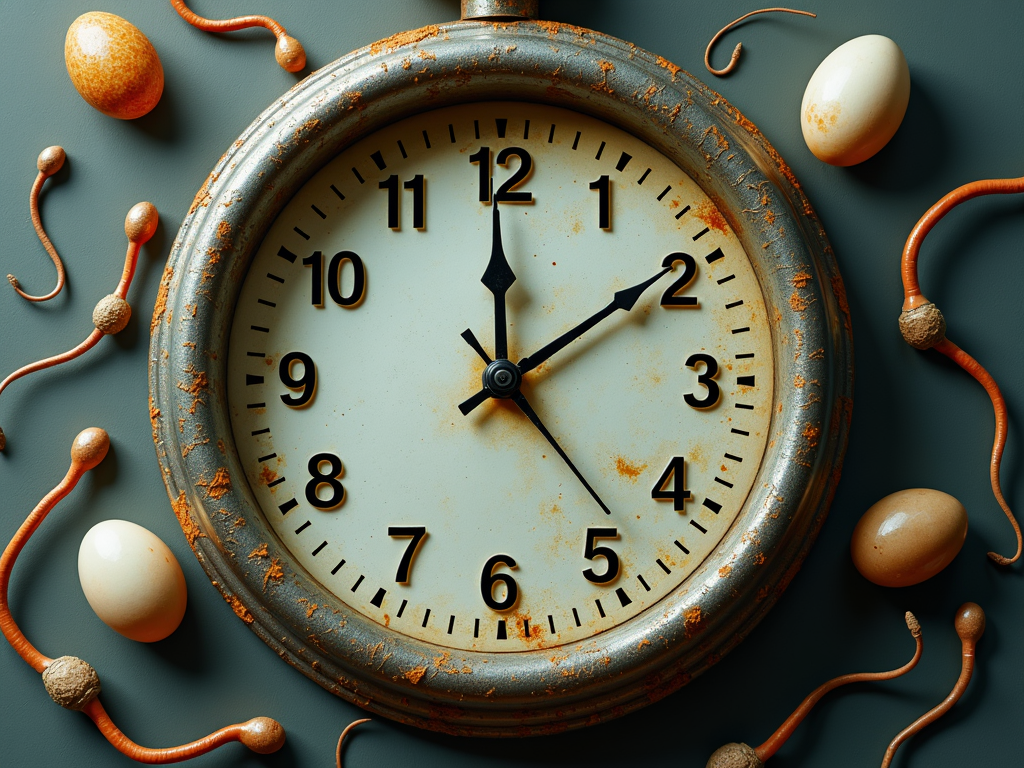Fertility Preservation and Age: What You Need to Know
March 18, 2025, 8:39 a.m.
Overview: As we age, fertility naturally declines, but advancements in medical science offer various preservation options. This article delves into what you need to know about fertility preservation, especially as you get older, including options for women over 35, understanding the biological clock, and personal stories that shed light on this important topic.
What is Fertility Preservation?
Fertility preservation is the process of saving or protecting eggs, sperm, or reproductive tissue so that a person can use them to have biological children in the future. This can be particularly important for individuals who are not ready to have children yet but want to ensure they have the option later in life, especially as age can impact fertility.
There are several methods of fertility preservation, including:
-
Egg Freezing (Oocyte Cryopreservation): This involves stimulating the ovaries to produce multiple eggs, which are then retrieved and frozen for future use.
-
Sperm Freezing (Sperm Cryopreservation): Men can freeze their sperm for future use, which is a simpler and less invasive process compared to egg freezing.
-
Embryo Freezing: This involves fertilizing eggs with sperm to create embryos, which are then frozen for future implantation.
-
Ovarian Tissue Freezing: This is a newer technique where ovarian tissue is removed and frozen for future use.
Each method has its own advantages and considerations, and the best option depends on individual circumstances, including age, health, and personal preferences.

How Age Affects Fertility
Age is one of the most significant factors affecting fertility in both men and women. For women, fertility begins to decline in the late 20s and early 30s, with a more rapid decline after age 35. This is due to a decrease in the number and quality of eggs.
For men, while sperm production continues throughout life, the quality of sperm can decline with age, leading to decreased fertility and an increased risk of genetic abnormalities.
Understanding these changes is crucial for making informed decisions about fertility preservation. For women over 35, the options for fertility preservation become even more important as the window for natural conception narrows.
Fertility Preservation Options for Women Over 35
Women over 35 who are considering fertility preservation should be aware of the following:
-
Egg Freezing: This is often the most recommended option for women in this age group. The success rates of egg freezing decrease with age, so it's generally advised to freeze eggs as early as possible.
-
Embryo Freezing: If a woman has a partner or is willing to use donor sperm, freezing embryos can be a viable option. Embryos tend to have higher survival rates after thawing compared to eggs.
-
Ovarian Tissue Freezing: This is still considered experimental but may be an option for women who cannot undergo egg or embryo freezing.
It's important to consult with a fertility specialist to determine the best course of action based on individual health and circumstances.

Understanding the Biological Clock: Myths and Facts
The concept of the 'biological clock' refers to the natural decline in fertility as one ages. However, there are many myths and misconceptions surrounding this topic.
Myth: Women can't get pregnant after 35.
Fact: While fertility does decline with age, many women over 35 can and do conceive naturally. However, the chances decrease, and the risks of complications increase.
Myth: Men's fertility doesn't decline with age.
Fact: Although men can father children later in life, sperm quality does decline with age, which can affect fertility and the health of offspring.
Myth: Fertility treatments can reverse the effects of aging.
Fact: While fertility treatments can help many people conceive, they cannot completely reverse the effects of aging on fertility. The success rates of treatments like IVF also decrease with age.
Understanding these facts can help individuals make informed decisions about when to start a family or when to consider fertility preservation.

Navigating Infertility: Personal Stories and Advice
Infertility can be a challenging and emotional journey. Hearing from others who have gone through similar experiences can provide comfort and guidance.
Story 1: Sarah's Journey
Sarah was 38 when she decided to freeze her eggs. She wasn't in a relationship and wanted to keep her options open. After consulting with a fertility specialist, she underwent the egg freezing process. Today, she feels empowered knowing she has taken steps to preserve her fertility.
Story 2: Mark and Lisa's Experience
Mark and Lisa were both in their early 40s when they started trying to conceive. After a year without success, they sought help from a fertility clinic. They learned about male infertility issues and underwent treatments that eventually led to the birth of their son.
Advice from Experts and Patients
-
Start Early: If you're considering fertility preservation, it's best to start as early as possible.
-
Educate Yourself: Learn about the different options and what might be best for you.
-
Seek Support: Infertility can be isolating. Joining support groups or talking to others who have gone through similar experiences can be helpful.
-
Consult Specialists: Fertility specialists can provide personalized advice based on your health and circumstances.

Understanding Male Infertility: Causes and Treatments
While much of the focus is on female fertility, male infertility is also a significant factor in many couples' struggles to conceive. Common causes of male infertility include:
-
Low Sperm Count: Insufficient sperm production can make conception difficult.
-
Poor Sperm Motility: Sperm that do not swim properly may not reach the egg.
-
Abnormal Sperm Morphology: Irregularly shaped sperm can affect fertility.
-
Hormonal Imbalances: Issues with hormones can impact sperm production.
Treatments for male infertility vary depending on the cause but may include:
-
Lifestyle Changes: Improving diet, exercise, and reducing stress can help.
-
Medications: Hormonal treatments or medications to improve sperm production.
-
Assisted Reproductive Technologies: Techniques like IVF or ICSI (Intracytoplasmic Sperm Injection) can assist in conception.
Understanding male infertility is crucial for couples facing fertility challenges, as it can often be a contributing factor.

Summary
Fertility preservation is an important consideration for individuals who wish to have children later in life. Age significantly impacts fertility, and understanding the options available, especially for women over 35, is crucial. By debunking myths about the biological clock and sharing personal stories, this article aims to provide valuable insights and guidance for those navigating fertility challenges.